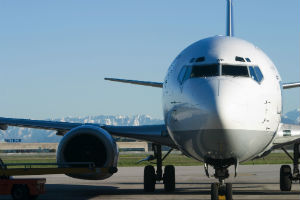Since the military government took over in 2014, expectations for Thailand have been optimistic. Unfortunately, the economy has yet to benefit from the efforts the government has taken, as the country sees project delays and a recent bombing tragedy that took the lives of 22 people.
Since the military government took over in 2014, expectations for Thailand have been optimistic. Unfortunately, the economy has yet to benefit from the efforts the government has taken, as the country sees project delays and a recent bombing tragedy that took the lives of 22 people.
Thailand’s economic growth slowed in the second quarter of the year as improved government spending and tourism failed to counter weak local demands and exports. A main reason for the decline is the rise and deceleration of the Chinese economy which has impacted Thailand’s export-dependent, open economy. As the government makes plans to boost the economy, along with the ASEAN Economic Community (AEC) to be implemented by the end of the year, it won’t be long before we see an economic upturn. The security industry on the other hand, has reached a turning point as recent events will create more requirements for security equipment and projects.
The recent bombing has indeed drastically raised security awareness, and added several requirements for equipment upgrades. The government plans to implement laws that would set a standard for camera resolution, making high resolution mandatory for street cameras in order to help with future investigations and deter criminal activity.
Delayed Projects Affect Security Players
The sluggish growth of the economy has led to delays in projects due to limited government budget, and a number of infrastructure projects have gone through specification and budget reviews. “The government annual budget appropriation is made by the end of every year, and as the Thailand government had experienced some regime change, most of the budget of the security-related projects which were made by the end of 2014 still got delayed or cut,” explained Joy Hu, Sales Engineer at
Dahua Technology. An example is the CCTV Safe Zone School project, to be implemented in three provinces in southern Thailand. “With plans to implement more than 6,000 surveillance cameras, the project should have started operation from the beginning of 2015, but could only be restarted again by the second half of this year, while the total scale has been reduced,” she commented.
The lack of government projects has indeed impacted the security industry. To handle the current situation, government project-oriented security players have also turned to the private sector to maintain growth.
“Panasonic prepare solutions for government projects and compensate the shortfall by providing private sector businesses, such as retail store groups and manufacturing companies with up-to-date solutions fulfilling customers’ requirements,” said Masami Eguchi, GM in APAC at
Panasonic System Communications. Delayed government projects have a smaller impact on players who are more focused on the private sector. “Private sector investments and decision making have been faster, and also has seen substantial growth in the last two years,” said Abhay Joshi, International Business Development and Sales Manager at
Matrix Comsec. According to Joshi, the company has been involved with a number of automobile companies providing security solutions to fit users’ requirements, as well as other valueadded services, which has fueled their growth.
Selected Government Projects Roll Out to Fuel Growth
 Despite lack of government budget,
Despite lack of government budget,
major projects continue to roll out
to push economic growth.
Despite a lack of government budget, major projects are continuing to roll out in order to push economic growth and help with tourism. According to Kritsada Phanbamrung, MD at CCTV Thailand, although many security-related projects have been delayed, the government will still roll out critical projects if required.
Thailand’s Ministry of Transport is pushing 17 infrastructure projects that include land, rail, water, and air transport. For water transport, the government is developing 19 piers along the Chao Phraya River to improve convenience and safety for passengers using express boat services. An eTicket system will be introduced that will be valid for river transport, buses, and metro train services. Coastal ports will be improved to handle cruise ships in efforts to transform Thailand into a marine hub in ASEAN. For air transport, there are several development projects, including the construction of phase two facilities and the third runway at Suvarnabhumi Airport, the renovation of Terminal 2 at Don Mueang Airport which is due for completion in November, as well as the extension of Phuket Airport, ready in February 2016.
For the security-related government projects market, the Ministry of Information Communication Technology will implement specification and price standards for surveillance cameras, which will allow for more transparency in projects. According to Hu, these actions will provide more opportunities and access for all qualified parties, but will also trigger more market conflicts and competition among the qualified parties.
Government Provides SME Stimulus
In efforts to revive the economy, the government recently approved a new round of economic measures worth US$5.7 billion to help small and mediumsized enterprises (SMEs). The short-term stimulus measures include $2.8 billion in seven-year soft loans, which will give the government an interest burden of approximately $555.6 million during the time.
Existing SMEs will have their income tax dropped to 10 percent for two tax years, whereas startups in certain sectors will receive a five-year exemption.
According to the Finance Ministry, these measures will help 60,000 SMEs continue business and maintain approximately 240,000 jobs, which are expected to improve the economy. Additionally, Thailand’s Revenue Department recently approved a new investment promotion policy that will offer more incentives and benefits for international headquarters and trading centers, hoping to lure in more foreign companies. The new policy provides qualified companies with more tax and non-tax privileges. According to Kelvin Lim, Country Manager at D-RON Technology, “Import policies have been improved which sees many brands of cameras reduced to zero percent on import duties. This will boost the growth and demand to improve and bring in better quality cameras.”